Homi Bhabha Balvaidnyanik Competition
The structure of the examination is as follows:-
- Written Exam
- Practical Round
- Interview Round
Study Guides for Dr. Homi Bhabha Balvaidnyanik Exam: 6th & 9th Grade
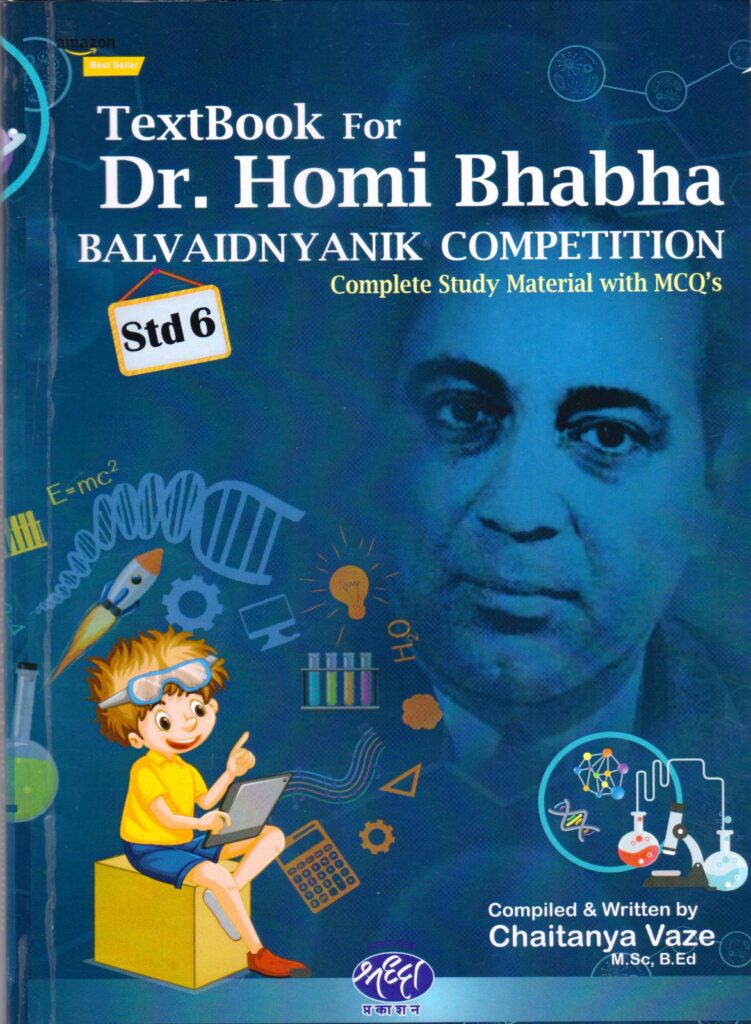
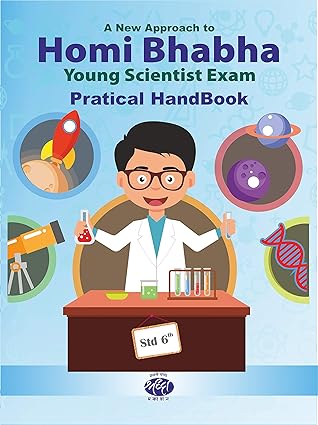
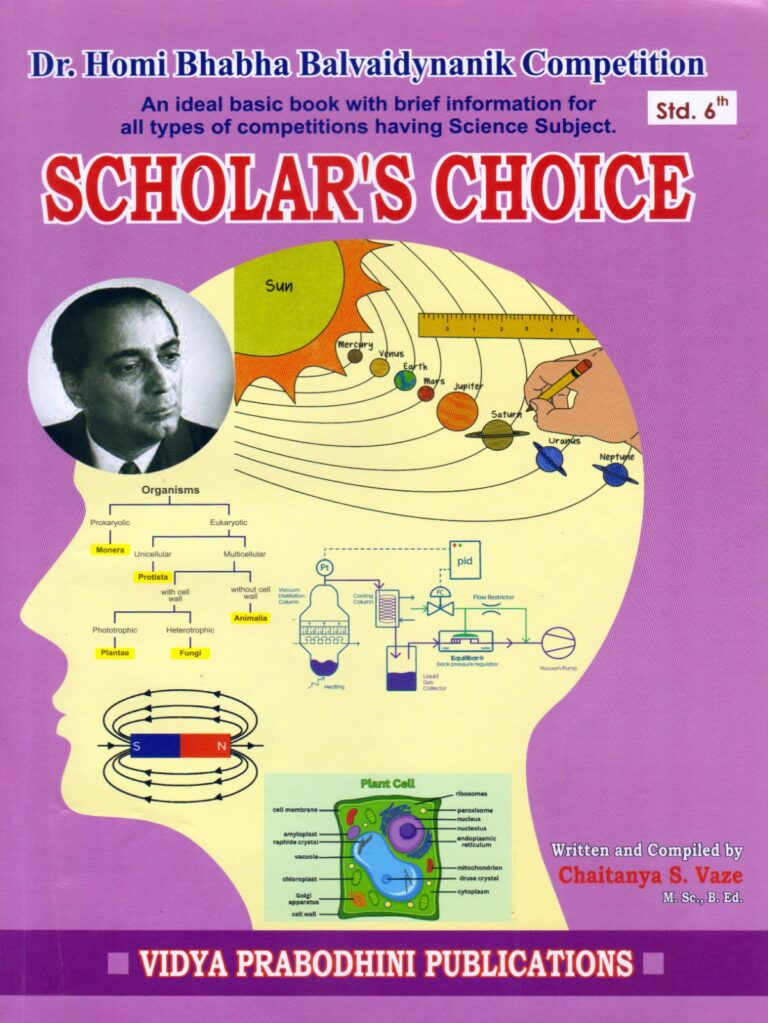
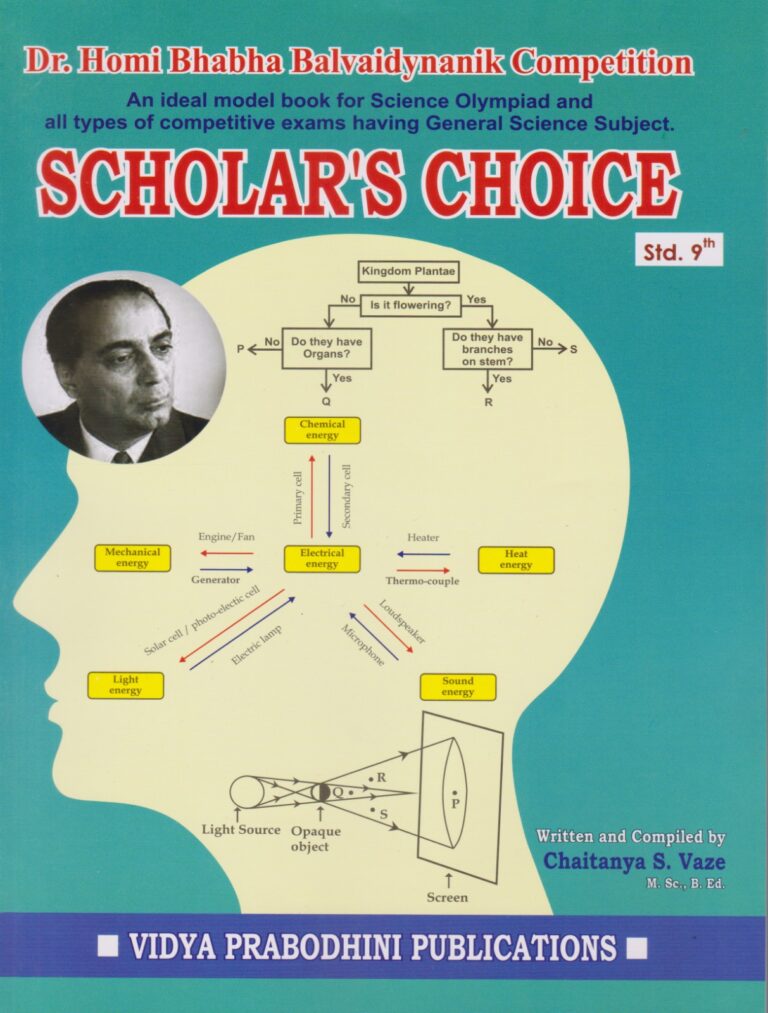
First Round(Theory)
The first round is conducted in the month of September. Best Homi Bhabha exam Coaching in Dombivli, Thane, Mumbai
The duration of this exam is 90 minutes and it consists of 100 multiple choice questions where only a single option is correct. Each question carries 1 mark. Correct answers are selected by darkening the circles in the OMR-sheet provided.
For 6th std.- Textbooks of 4th ,5th and 6th std. of S.S.C. syllabus and Content related to the above from ICSE ,IB and CBSE books.
Weightage :- a. About 10 % questions on 4th std. syllabus, b. About 20 % questions on 5th std. syllabus, c. About 60 % questions on 6th std. syllabus, d. About 10 % questions on General knowledge in science.
For 9th std. – Textbooks of VII ,VIII and IX std of S.S.C. syllabus and Content related to the above from ICSE,IB and CBSE books.
Weightage :- a. About 10 % questions on 7th std. syllabus b. About 20 % questions on 8th std. syllabus, c. About 60 % questions on 9th std. syllabus, d. About 10 % questions on General knowledge in science.Less emphasis will be given for knowledge based questions and more emphasis for understanding, reasoning, correlation, application etc. Majority of the questions will be from S.S.C. board text books and Content related to the above from ICSE,IB and CBSE books. The questions related to general knowledge in science will be based on the topics like happenings in the past and science around day to day life.
The paper pattern can be summarised as follows-
General Science
No. of Questions : 90
Marks : 90
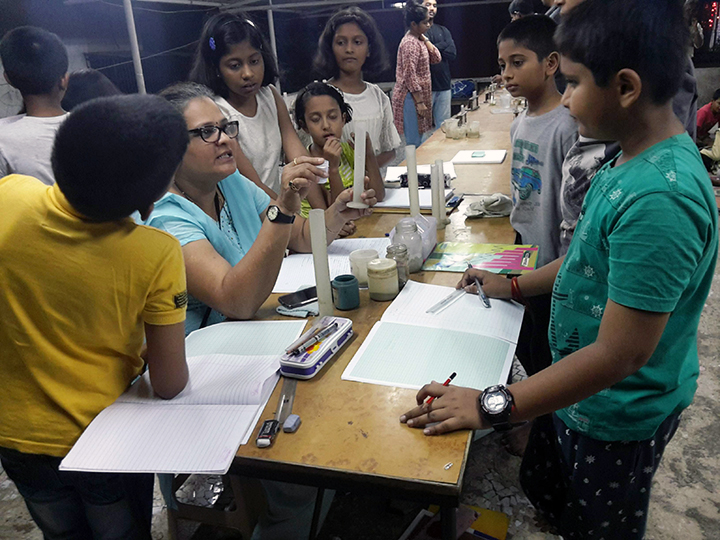
General Knowledge
No. of Questions : 10
Marks : 10
Second Round(Practicals)
The second round is conducted in the month of December. This round tests the knowledge, application and practical skills of students. Students have to perform experiments on their own and answer questions based on it. For std IX In Physics and Chemistry, students are expected to perform one experiment each carrying 10 marks in 10 minutes each. In biology students have to answer questions based on their observations by examining 10 specimens, 1 mark and 1 minute each, so each subject carries 10 marks. The distribution of marks is as follows.
Physics
1 Experiment
Marks : 10
Biology
10 specimens
Marks : 10
Chemistry
1 Experiment
Marks : 10
For 6th standard there will be 5 activities or experiments. Each experiment is for 6 marks and 6 minutes.Students have to perform these experiments on their own and they have to write observations and results in the answer sheet. Also they have to solve few questions based on the experiments. In biology practical students have to answer questions based on their observations by examining specimens. So, practical examination is of 30 marks & 30 minutes
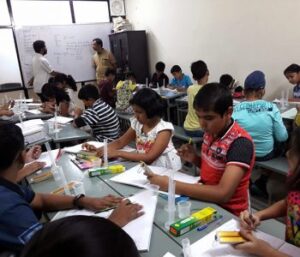
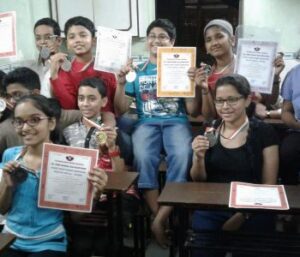
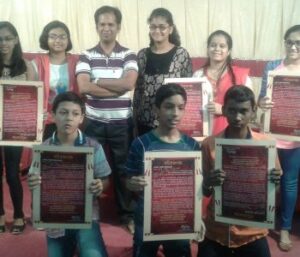
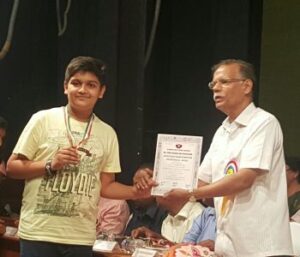
Selection Criteria
For selection to phase II- Merit wise, top 7.5% candidates will be selected for phase II. They will get a merit certificate while the rest of the passing students will get a passing certificate.
For selection to phase III- 70% marks of phase I + marks of phase II are considered. Top 10% candidates are selected for phase III. All the students appearing for phase III are awarded a medal. 70% marks of phase I + marks of phase II and III are considered. Medals are awarded as follows-
- Top 10% candidates are awarded a gold medal and a scholarship of Rs. 3000.
- Next 60% candidates are awarded a silver medal and a scholarship of Rs. 2000.
- Remaining candidates are awarded a bronze medal and a scholarship of Rs. 1000.
Our Features
- Lecture-cum-Demo method of teaching
- Development of students’ interest in sciences
- Activity based teaching methodology is adopted
- Access to projects and more than 800 reference books in the library
- Exhaustive test series to get accustomed with the exam pattern
- Polishing of basic concepts
- Detailed printed notes are provided
- Workshops and doubt solving lectures for parents
- Development of confidence in the student
- Well equipped laboratory with all the required chemicals and apparatus
Reference Books
- Menaka publications
- Homi Bhabha Young Scientist Exam Most Likely 600 Questions For Std 6th
- Homi Bhabha Young Scientist Exam for Std 6th
- 1000 Question & 600 Questions Std 6th Homi Bhabha Young Scientist

